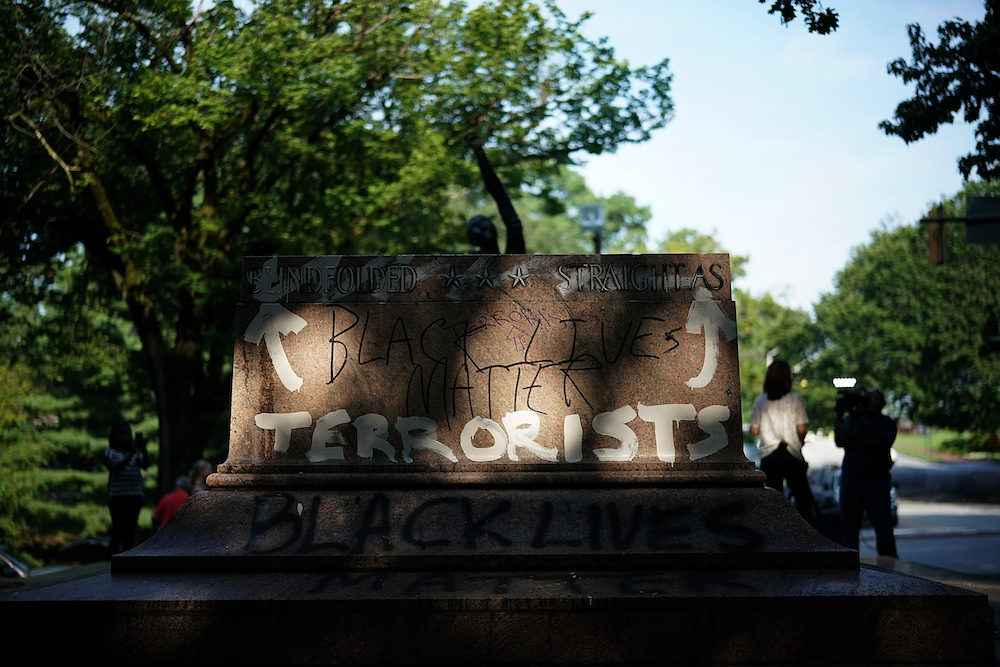Late last night, crews of city contractors pulled four confederate monuments from their pedestals in Baltimore. The decision to remove the statues came without warning, and of course followed the news of deadly rioting at a white nationalist rally protesting a similar removal in Charlottesville, Va.. over the weekend.
Baltimore officials have been mulling a decision to take down the statues for over a year. Mayor Catherine Pugh, who personally presided over the removals, implied that the city made the snap decision in order to avoid Charlottesville-style violence. From the Baltimore Sun:
“It’s done,” she said Wednesday morning. “They needed to come down. My concern is for the safety and security of our people. We moved as quickly as we could.”
…

Also Read
Pride Crowds
The quick overnight action was designed in part to avoid violent conflicts over their removal like what Charlottesville experience.“I did not want to endanger people in my own city,” she said. “I had begun discussions with contractors and so forth about how long it would take to remove them. I am a responsible person, so we moved as quickly as we could.”
Pugh made the right moral decision to remove the statues, but she was also just playing smart politics. In a city that ousted its previous mayor after her lackluster response to the killing of Freddie Gray by Baltimore police and the violent unrest that follows, it benefits Pugh to be seen as an enlightened friend of the people. And with the city still reeling from the Gray riots of 2015, an outbreak of political violence like the one in Charlottesville would be disastrous on multiple levels.
Derek Bowden, a local photographer quoted in the Sun‘s story, succinctly described the significance of the decision to stop honoring treasonous racists in the majority-black city: “It’s major in its own right, but it’s small when it comes to the bigger battle.”
The bigger battle in Baltimore includes a massive income gap between black and white people in the city, rampant police violence, segregated neighborhoods that still bear the effects of the country’s first explicitly racially motivated zoning law and neighborhood covenants designed to keep out black people, and a dwindling budget for public schools, among many other things. The removal of the city’s monuments to white supremacy is certainly a victory for the people of Baltimore, but for now, it’s mostly a symbolic one.





